Netanyahu is prolonging the war to save his life’s mission
While an endless military operation allows the prime minister to cling to power, it also fulfills a larger ideological goal: preventing Palestinian statehood.
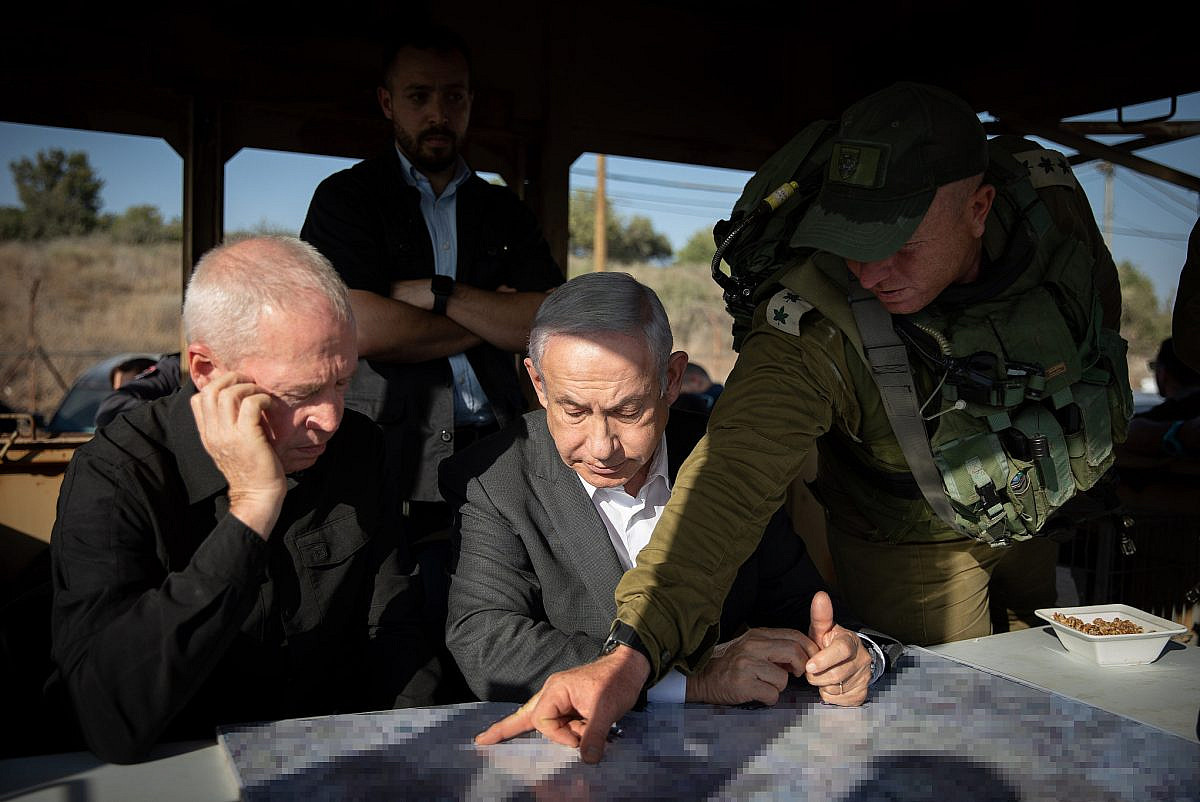
In partnership with
It took Prime Minister Benjamin Netanyahu more than a month to present to the Israeli public any kind of exit strategy from the war that Israel has been waging on Palestinians in the Gaza Strip since October 7. The war will end, he said in a press conference on Nov. 11, “after Hamas has been eliminated. Gaza will be demilitarized and won’t be a threat to the State of Israel. The IDF will continue to have security control over Gaza to prevent terror.”
He went on: “Any place where there’s no Israeli security control, terror returns, entrenches itself, and harms us. This has been proven also in Judea and Samaria [the West Bank]. Therefore, I will not agree to give up on security control under any circumstances.”
When asked about the possibility of the Palestinian Authority (PA) returning to rule Gaza, Netanyahu replied: “There will be no civil authority that educates its children to hate Israel or kill Israelis. There cannot be an authority that pays money to the families of murderers. There cannot be an authority whose leader has still not condemned the massacre. There will need to be something else — but in any case, with our security control.”
Subscribe to The Landline
+972's weekly newsletter
A few things can be inferred from these comments. The first is that Netanyahu is aiming for a very long — maybe even endless — war. The Israeli army may indeed be advancing through Gaza, forcibly displacing all the residents from the areas it captures, and destroying those areas to their very foundations.
But even if the army turns Gaza’s northern cities and refugee camps into ghost towns, we are still only talking about the “upper cities.” Nobody, except perhaps Hamas commanders, knows how many Palestinian fighters remain in tunnels underneath the surface; how many of them will still be there after the occupation is complete; how many will move through the tunnels to the south of the Strip; and how many are already in that region.
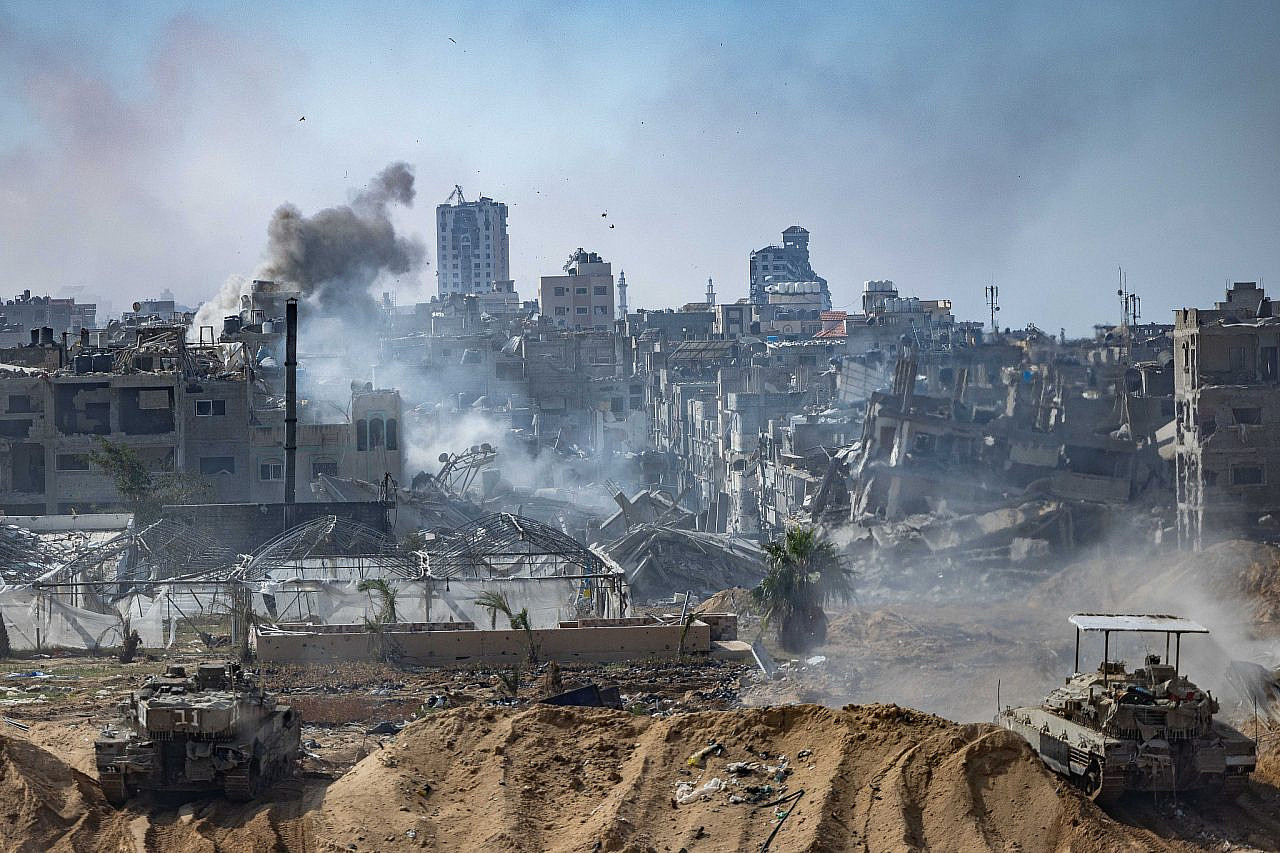
Israel reportedly estimates that most of the Israeli hostages abducted on October 7 are currently located in the south of the Strip. This means that after the population of northern Gaza has been fully displaced, there will be more than 2 million Palestinians concentrated in half of the Strip, along with the majority of Hamas’ military power and perhaps most of its leadership. In other words, achieving the mission of “eliminating Hamas” and demilitarizing the Strip, as Netanyahu has promised, will be a mammoth task.
And what will Israel do with the 2 million Palestinians then residing in the south, whom it is already ordering to evacuate from certain areas? An attempt to push them into the Sinai Peninsula is likely to greatly deteriorate Israel’s relationship with Egypt, perhaps even drawing the latter into the war.
Replicating the aggression Israel has waged in the northern Strip is likely to end with thousands killed per day, because the population density will be doubly high. The current humanitarian catastrophe is likely to spiral into biblical proportions. Faced with a crisis like this, it’s hard to see the Western world and the Arab states that have relations with Israel — Egypt, Jordan, and the signatories to the Abraham Accords — staying silent, not to mention Hezbollah, the Houthis in Yemen, and perhaps also Shiite militias in Iraq.
What makes the task of ending the war almost impossible, however, is Netanyahu’s condition that Israeli forces be able to act freely throughout the Strip, as they do in the West Bank and as they did in Gaza until 2005. No international, Arab, or local body will be prepared to take upon themselves civilian governance in a decimated Gaza — the running of which would require massive effort and investment — as a subcontractor for an occupying Israeli army. And Netanyahu has already ruled out the PA, despite the latter obligingly fulfilling this duty in the West Bank for three decades.
It’s not for nothing that the U.S. government said from the very beginning of the war that Israel will not control Gaza after it ends. Without U.S. involvement, it is hard to see any possibility of reaching an agreement for ending Israel’s assault.
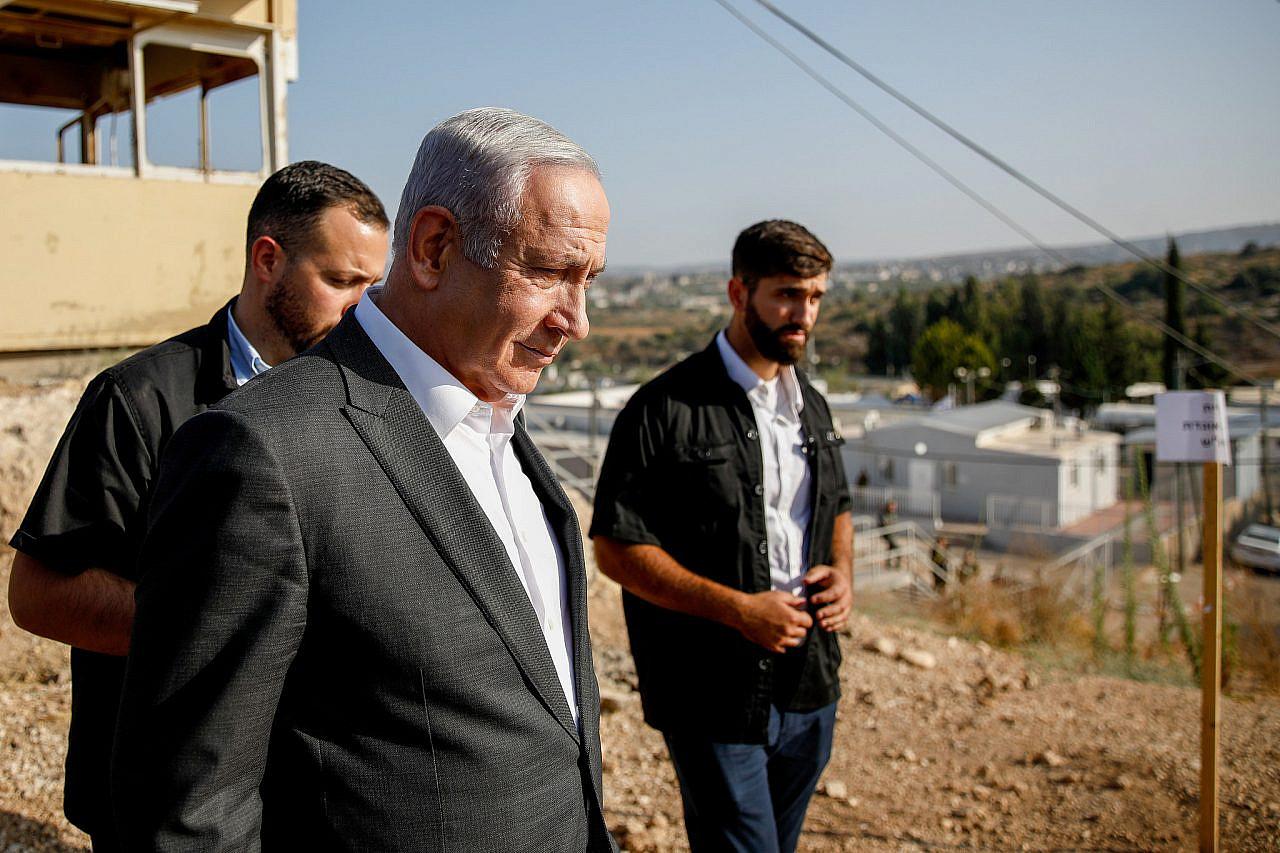
If Netanyahu is seriously intending to insist on this condition, then it can only be assumed that he has decided to give up on an exit strategy. After all, in the West Bank, which Netanyahu presents as a model, Israel has not succeeded in totally subjugating the Palestinian population even after 56 years. More than 30 battalions were operating throughout the occupied territory before October 7, and still they faced resistance. How much firepower will Israel need to eliminate all resistance in Gaza?
Netanyahu’s conditions also make a deal to release the Israeli hostages almost impossible. What incentive does Hamas have to reach an agreement if the terms imposed on them include their complete elimination and full Israeli control of the Strip?
A legacy in jeopardy
The prime minister is, of course, aware of the fact that the only way to end the war, and to rid Gaza of Hamas rule, is through some sort of international process — which he is opposing in favor of continuing the army’s assault. But not everyone in Israel’s war cabinet is demanding the same conditions: Benny Gantz, who was recently made a minister without portfolio, didn’t speak of continued Israeli military control in the Strip, but rather “regime change.” So what is really driving Netanyahu’s stated agenda?
A cynical analysis — and there’s no reason not to be cynical when it comes to Netanyahu — would suggest that the prime minister wants to extend the war because he knows, or at least suspects, that the day the war ends, the countdown to the end of his rule will begin. Netanyahu may have expected that a massive assault on Gaza would improve his political standing with the Israeli public, but the exact opposite has happened.
It’s hardly the first time this has happened in Israeli history: Menachem Begin was forced to resign a year after the 1982 Lebanon War, and Ehud Olmert was deposed in great part due to the 2006 Lebanon War.
In objecting to bringing back PA rule to Gaza, however, Netanyahu is returning to the position from which he first launched his career as Israeli prime minister. Back in 1996, after winning the election following the assassination of then-Prime Minister Yitzhak Rabin, Netanyahu played a central role in backtracking on the Oslo peace process and fending off the PA in order to prevent the establishment of a Palestinian state.
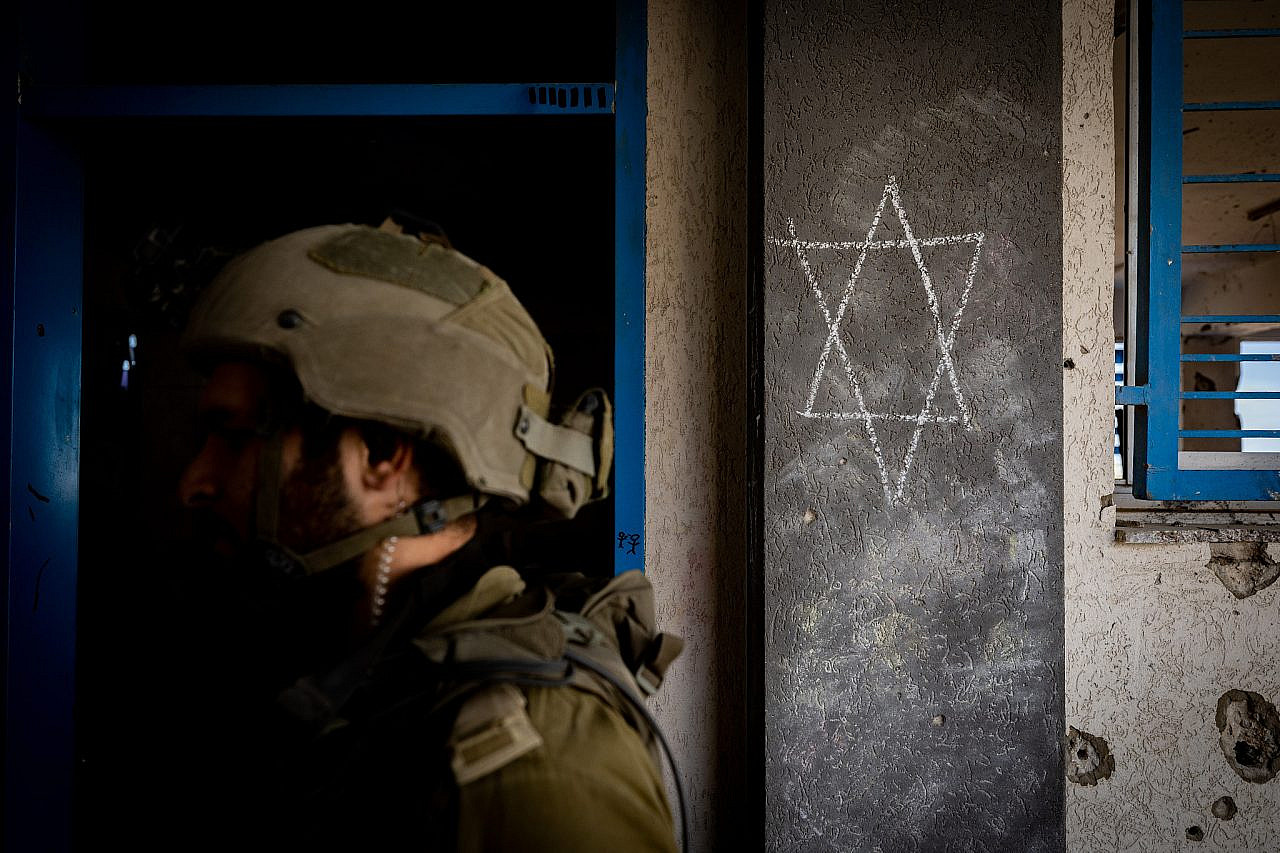
It is possible Netanyahu thinks that by presenting himself as the barrier to the PA’s rule today, he could win back a strong support base among the Israeli right and far right. A political discourse that revolves around the question of who is for or against a Palestinian state is far more comfortable for Netanyahu than one dominated by the question of whether he can be trusted to run the country.
But there is something deeper at play here than just political survival. Netanyahu’s life mission has been to eliminate Palestinian nationalism. For him, this is the historical goal of this generation of the Jewish people — one that he inherited from his father — and this is the reason why he was willing to strengthen Hamas in Gaza for years as a means of keeping the Palestinian national movement divided.
If this war ends with the PA’s position strengthened, even slightly, and with the opening up of a pathway that uses the two-state solution as its compass — as the Americans, the Europeans, and much of the Arab world are urging — then Netanyahu’s entire legacy will be in jeopardy. And so, driven by his ideology, the prime minister prefers to prolong the war, even if there is no chance of achieving a real military victory, in order to stave off any progress toward Palestinian independence.
Most read on +972
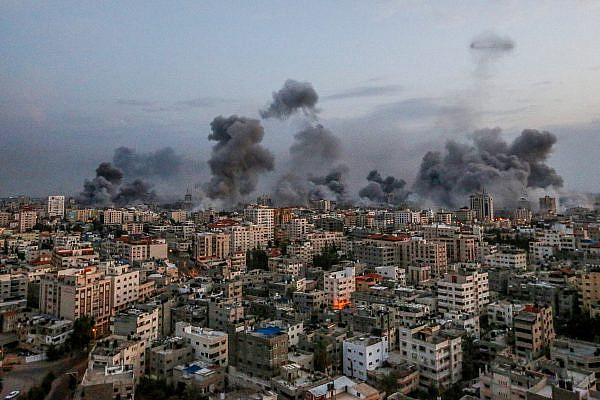
After the massacres of October 7, Netanyahu cannot return to the policy of strengthening Hamas to weaken the Palestinian national movement. Neither the Israeli public nor the United States will accept it; for them, Hamas is the enemy that needs to be crushed, and there is no way to avoid that.
Still, in Netanyahu’s eyes, the bigger threat to Israel, and the bigger threat to Zionism’s historical purpose, is a political process with the Palestinians, at the end of which a different political entity — besides the Jewish State of Israel — can be established between the Jordan River and the Mediterranean Sea. And if Israel has to keep fighting to prevent this threat, and if it has to forever live by the sword to block this possibility, so be it. A century ago, this was Ze’ev Jabotinsky’s Iron Wall. Now, this is Benjamin Netanyahu’s Iron Wall.
A version of this article was first published in Hebrew on Local Call. Read it here.
Meron Rapoport is an editor at Local Call.
Our team has been devastated by the horrific events of this latest war – the atrocities committed by Hamas in Israel and the massive retaliatory Israeli attacks on Gaza. Our hearts are with all the people and communities facing violence.
We are in an extraordinarily dangerous era in Israel-Palestine. The bloodshed unleashed by these events has reached extreme levels of brutality and threatens to engulf the entire region. Hamas’ murderous assault in southern Israel has devastated and shocked the country to its core. Israel’s retaliatory bombing of Gaza is wreaking destruction on the already besieged strip and killing a ballooning number of civilians. Emboldened settlers in the West Bank, backed by the army, are seizing the opportunity to escalate their attacks on Palestinians.
This escalation has a very clear context, one that +972 has spent the past 13 years covering: Israeli society’s growing racism and militarism, the entrenched occupation, and an increasingly normalized siege on Gaza.
We are well positioned to cover this perilous moment – but we need your help to do it. This terrible period will challenge the humanity of all of those working for a better future in this land. Palestinians and Israelis are already organizing and strategizing to put up the fight of their lives.
Can we count on your support? +972 Magazine is the leading media voice of this movement, a desperately needed platform where Palestinian and Israeli journalists and activists can report on and analyze what is happening, guided by humanism, equality, and justice. Join us.


No comments:
Post a Comment